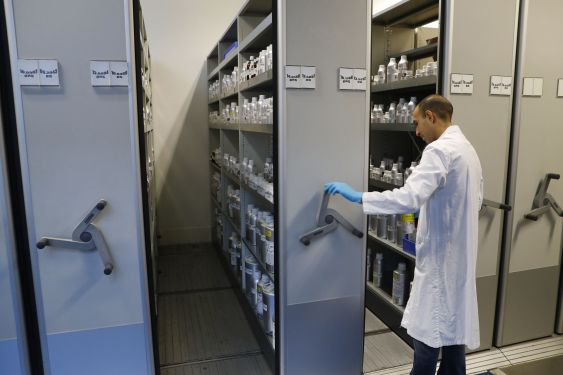Albert Invent Aims to Revolutionize Chemicals Sector with AI Platform

In recent times, the adoption of generative AI has been on the rise, particularly in the sciences. This trend is not surprising given the complexity and trial-and-error nature of research and development in various scientific fields. The latest innovation to emerge from this space is Albert Invent’s AI platform, which has secured a significant $22.5 million Series A funding round led by Coatue.
A Platform Born Out of Materials Science Expertise
Albert Invent’s founders have an impressive background in materials science. They previously ran a 3D printing company and leveraged their knowledge to develop an AI platform trained on data from past chemical experiments. The result is Albert Breakthrough, a cutting-edge tool that enables chemists to interrogate molecular-level data when formulating chemicals.
A Game-Changer for Chemical Companies
The platform combines structured data with the company’s proprietary AI models. This integration aims to revolutionize the way chemical companies develop new products by speeding up the process and enhancing its quality. Albert Breakthrough can generate real-time toxicology predictions, outperforming standard industry models in this regard.
Pioneering the Application of AI in Chemistry
Chemical companies such as Chemours, Solenis, Keystone Industries, Applied Molecules, Henkel, and Nouryon have already incorporated Albert Invent’s platform into their product development processes. Nick Talken, CEO and co-founder of Albert Invent, believes that his company is bringing the same benefits to chemical science that data scientists have enjoyed for some time.
"This is a SaaS product that’s being used by the largest chemical companies in the world to reinvent the physical world fundamentally," he said. "The biggest problem we face as a society, from sustainability to personalized medical devices — all those are going to be solved through chemistry."
Domain-Specific Knowledge Key to AI Success
Talken emphasized the importance of domain-specific knowledge when building an AI platform. Albert Breakthrough is powered by a foundational model trained on over 15 million chemical structures, which provides a robust and accurate understanding of molecular-level data.
In contrast, other AI models may rely on publicly available data or general-purpose models like OpenAI’s. While these can be useful for certain applications, Talken noted that they are not sufficient for the complexities of chemistry.
"We’ve taken pretty much the entire public information space around chemistry, built a foundational model, and that’s what powers Albert Breakthrough," he explained.
A Foundational Model Built from Scratch
Albert Invent’s co-founder, Ken Kisner, has an impressive background in materials science. He previously led Molecule Corp, which produced 3D materials for stereolithography. The two built Molecule Corp and sold it to Henkel Corporation in May 2019.
At Henkel, they established a team focused on developing new materials and technologies. This experience laid the groundwork for Albert Breakthrough, which has already gained traction among leading chemical companies.
A Bright Future Ahead
The success of Albert Invent’s AI platform is a testament to the potential of generative AI in sciences. By leveraging domain-specific knowledge and expertise, the company has developed a cutting-edge tool that is revolutionizing the way chemical companies develop new products.
As Talken noted, "We’re not just building an AI platform; we’re changing the game."
Related Stories
- Nvidia’s Project Digits: A Personal AI Supercomputer
Nvidia’s latest innovation, Project Digits, is a personal AI supercomputer that aims to make complex calculations more accessible. - Google Forms New Team to Build AI That Can Simulate Physical World
Google has formed a new team dedicated to developing AI that can simulate the physical world. This effort aims to create more realistic and immersive experiences.
Subscribe for More Tech News
Stay ahead of the curve with our daily newsletter, covering the latest breakthroughs in AI, robotics, transportation, and more.